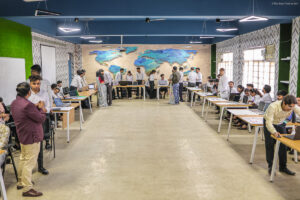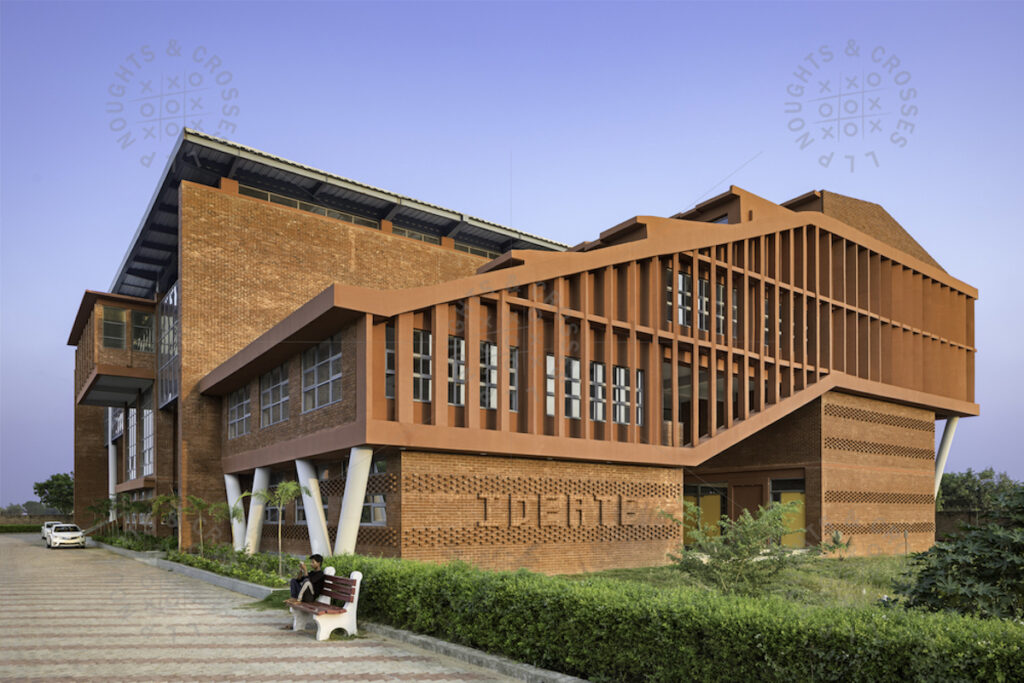Fees of DPharma
The fees of DPharma (Diploma in Pharmacy) course in India typically range from ₹50,000 to ₹1,50,000 per year, depending on the institution. Private colleges generally charge higher fees compared to government institutions.
The total cost includes tuition, registration, examination, lab, library, and miscellaneous fees. Additional expenses such as books, accommodation, and transportation may also apply.
Fees of DPharma have been increasing due to inflation and enhanced facilities. However, many institutions provide scholarships and financial aid to help students afford their education. Additionally, regional differences affect the fee structures, with metropolitan areas typically being more expensive.
Some of the most opted courses in India and St. Andrews college or different Engineering college or Management colleges are as follows:-
- Btech
- MTech
- Btech CSE
- MBA
- Btech ETCE
- BCA
- BBA
- MCA
- DPharma – St. Andrews College of Pharmacy
- BPharma – St. Andrews College of Pharmacy
- BArch – St. Andrews College of Architecture
Full Form of DPharma
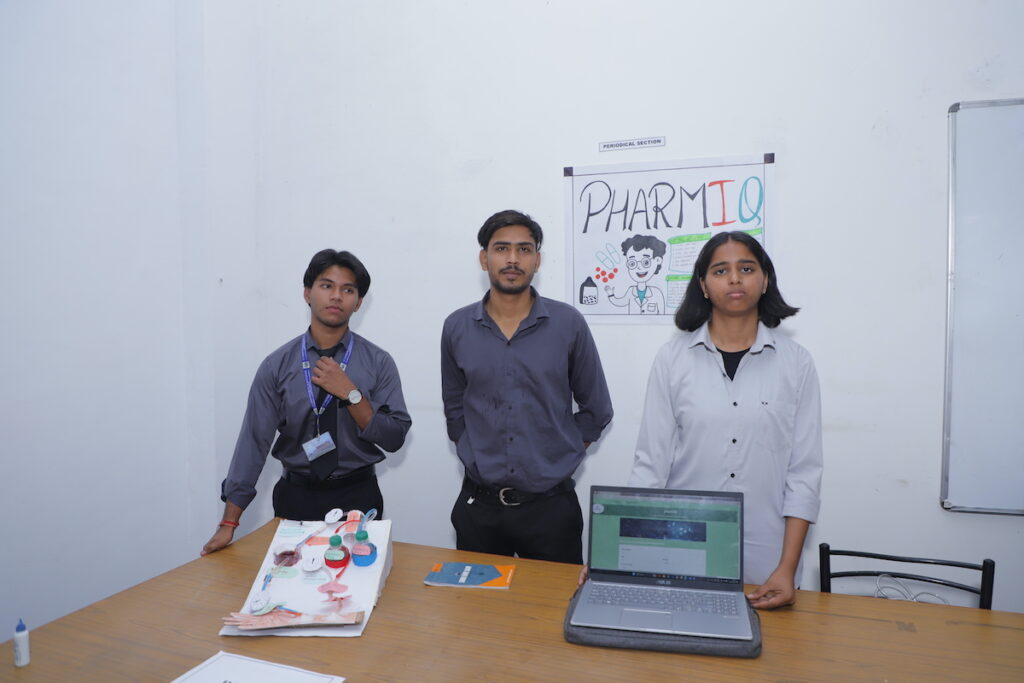
D Pharma stands for Diploma in Pharmacy. It is a two-year undergraduate diploma course in the field of pharmacy, designed to provide students with foundational knowledge and practical skills related to pharmaceutical sciences.
The D. Pharma program includes subjects like Pharmacology, Pharmaceutical Chemistry, Pharmacognosy, and Hospital & Clinical Pharmacy. In the midst of studying these areas, students also learn about the Fees of DPharma, preparing them financially for this education. This diploma serves as an entry-level qualification for those aspiring to enter the pharmaceutical industry, with career paths available as pharmacists, medical representatives, and quality control analysts.
Graduates with a D Pharma (full form: Diploma in Pharmacy) can also pursue further studies, such as B Pharma, to enhance their careers in the pharmaceutical and healthcare sectors.
Overview of D Pharmacy Course
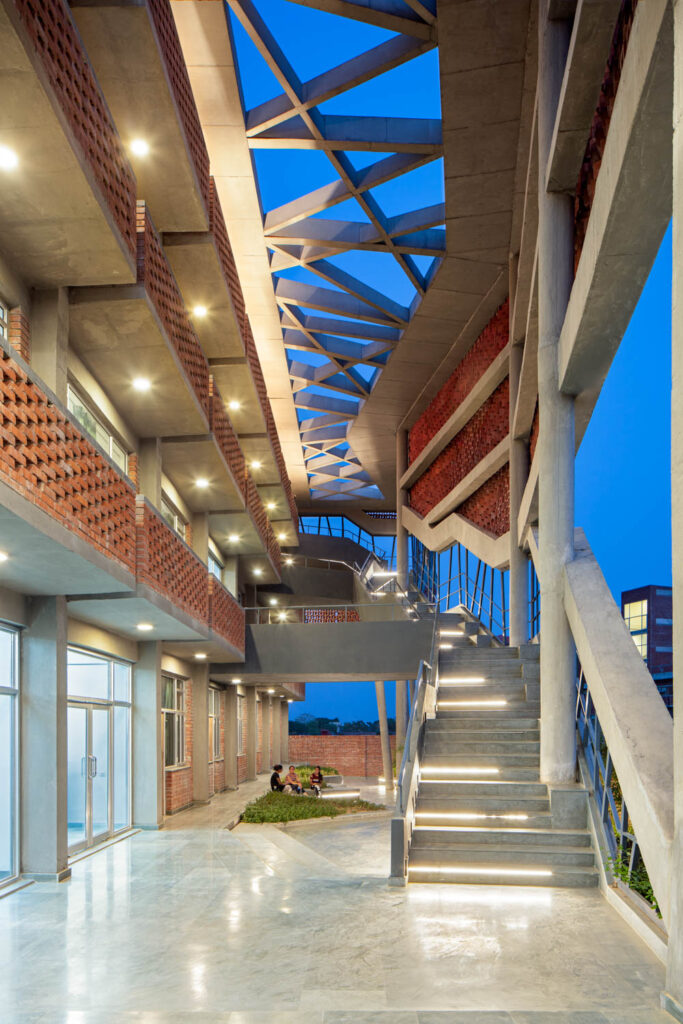
The D. Pharma (Diploma in Pharmacy) course is a 2-year program designed to provide foundational knowledge and skills in pharmacy.
The D. Pharma program encompasses subjects such as Pharmacology, Pharmaceutical Chemistry, Pharmacognosy, and Hospital & Clinical Pharmacy. Amidst the academic curriculum, students are also informed about the Fees of DPharma, equipping them with financial knowledge necessary for their education. This diploma qualifies individuals for entry-level roles in the pharmaceutical industry, including positions as pharmacists, medical representatives, and quality control analysts.
The course prepares graduates for roles in retail and hospital pharmacies, drug manufacturing, and healthcare settings. Admission typically requires completion of 12th grade with Physics, Chemistry, and Biology or Mathematics. The course equips students for a career as a registered pharmacist.
Factor Affecting DPharma Fee Structure
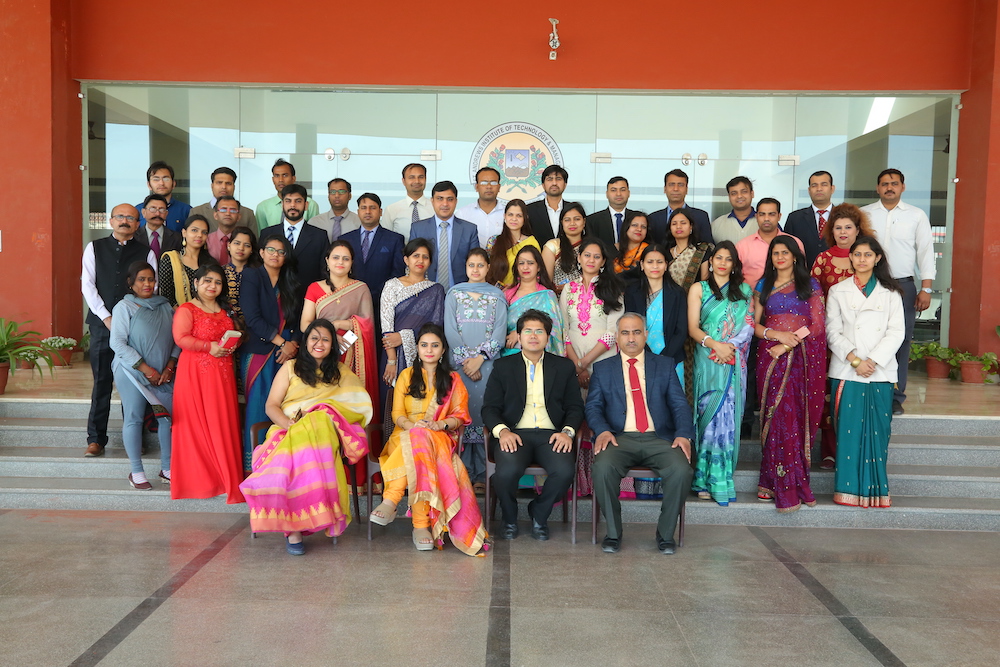
The fee structure for DPharma (Diploma in Pharmacy) programs can vary widely based on several factors:
Institution Type
Govt colleges typically have lower fees compared to private institutions. Private colleges often charge higher fees due to additional infrastructure and facilities.
Location
Fees can vary based on the city or region. Institutions in metropolitan areas or cities with a higher cost of living may have higher fees.
Reputation and Ranking
Well-established institutions with a good reputation or higher ranking often charge higher fees.
Facilities and Infrastructure
Colleges with advanced laboratories, libraries, and other facilities may have higher fees to cover the costs of maintaining these resources.
Course Duration and Curriculum
The duration of the course and the inclusion of additional training or specialization can affect the fee structure.
Scholarships and Financial Aid
Availability of scholarships or financial aid can influence the actual fee paid by students.
Government Regulations and Subsidies
Government regulations and subsidies can impact the fee structure. Some states or countries may provide subsidies for education, reducing the overall fee.
Mode of Education
Fees might differ between regular, part-time, or distance learning programs.
Detail Breakdown of DPharma Fee
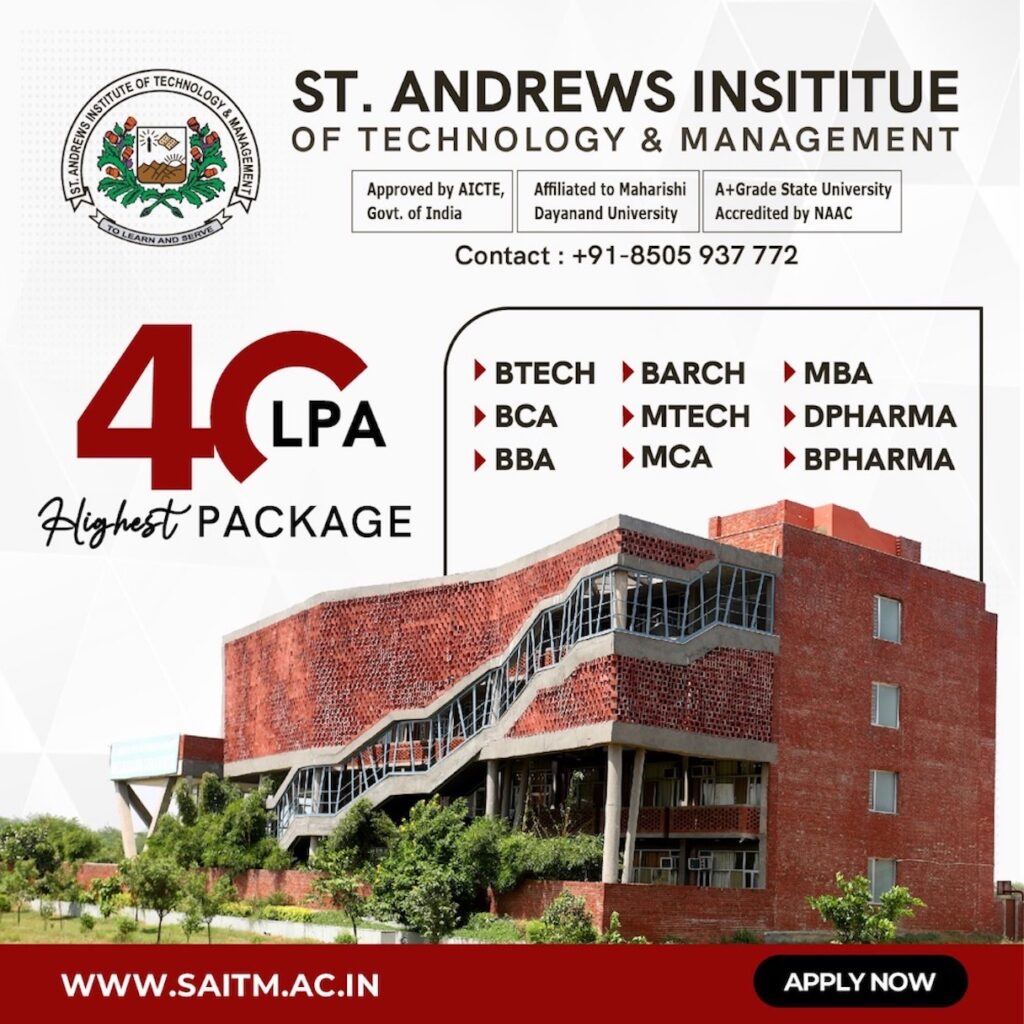
A detailed breakdown of the D. Pharma (Diploma in Pharmacy) fee typically includes the following components:
Tuition Fees
This is the primary cost and varies based on the institution. It generally ranges from ₹50,000 to ₹1,50,000 per year.
Registration and Examination Fees
These are mandatory charges for enrolling in the course and appearing in exams, usually ranging from ₹5,000 to ₹20,000 annually.
Laboratory Fees
Since pharmacy education involves practical training, lab fees cover the use of equipment and materials. This can range from ₹10,000 to ₹30,000 per year.
Library Fees
This fee covers access to textbooks, reference materials, and online resources, typically between ₹2,000 and ₹10,000 annually.
Development Fees
Some institutions charge development fees for infrastructure and facility improvements, ranging from ₹5,000 to ₹15,000 per year.
Caution Deposit
A refundable security deposit for the use of facilities, usually around ₹5,000 to ₹10,000, paid at the beginning of the course.
Miscellaneous Fees
This includes charges for extracurricular activities, sports, and cultural events, typically ranging from ₹2,000 to ₹5,000 annually.
Hostel and Accommodation Fees (if applicable)
For students opting for on-campus accommodation, fees can range from ₹30,000 to ₹1,00,000 per year, depending on the facilities provided.
Books and Study Material
An additional cost of ₹5,000 to ₹10,000 per year for purchasing textbooks, notebooks, and other study materials.
Fee Structure for DPharma Specializations

Here’s a general breakdown of the detailed fee structure:
Tuition Fees
- Pharmaceutical Chemistry: ₹50,000 to ₹1,50,000 per year
- Pharmacology: ₹50,000 to ₹1,75,000 per year
- Pharmacy Practice: ₹55,000 to ₹1,60,000 per year
- Clinical Pharmacy: ₹60,000 to ₹1,80,000 per year
- Hospital Pharmacy: ₹50,000 to ₹1,70,000 per year
Books and Study Materials
- Average Range: ₹5,000 to ₹15,000 per year, depending on specialization and syllabus.
Lab Equipment and Practical Fees
- Pharmaceutical Chemistry: ₹12,000 to ₹25,000 per year
- Pharmacology: ₹15,000 to ₹30,000 per year
- Pharmacy Practice: ₹10,000 to ₹22,000 per year
- Clinical Pharmacy: ₹18,000 to ₹35,000 per year
- Hospital Pharmacy: ₹10,000 to ₹25,000 per year
Examination Fees
- Average Range: ₹1,000 to ₹5,000 per semester across all specializations.
Miscellaneous Fees
- Registration Fees: ₹2,000 to ₹5,000 per year
- Library Fees: ₹1,000 to ₹3,000 per year
- Other Institutional Charges: ₹2,000 to ₹5,000 per year
Hostel and Accommodation (if applicable)
- Average Range: ₹30,000 to ₹1,00,000 per year, varying by location and type of accommodation.
Scholarships and Financial Aid
- Available for eligible students, varying by institution and specialization, which can significantly reduce overall costs.
Key Points
- Specialization Impact: Fees may vary based on the complexity and resources required for each specialization.
- Institutional Variation: Private institutions may have higher fees compared to govt colleges.
- Location Influence: Urban institutions generally have higher associated costs compared to rural colleges.
Trends in DPharma Course Fees
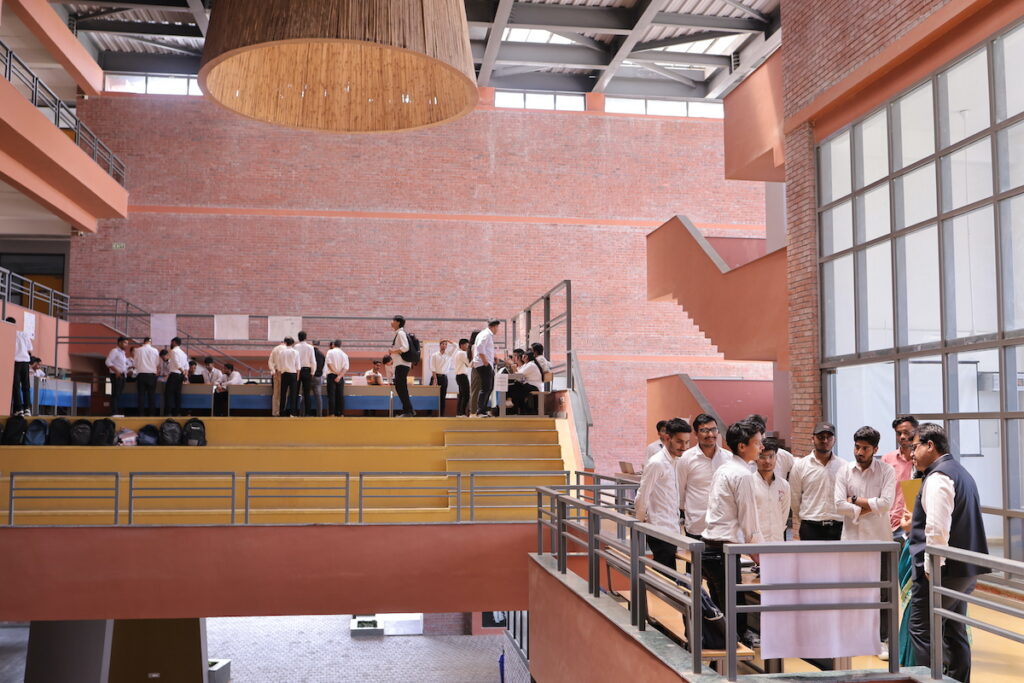
Here are some key trends observed:
Rising Tuition Costs
- Trend: Tuition fees for D. Pharma courses have been steadily increasing, especially in private institutions, which can impact the overall cost, including entrance exam fees. This is due to inflation, increased demand for the course, and the inclusion of more advanced facilities and infrastructure in colleges.
- Impact: Higher tuition costs are making it more challenging for students from lower-income backgrounds to afford the course without financial aid.
Differentiation Between Private and Government Institutions
- Trend: The gap between fees charged by private and government institutions has widened. Govt colleges typically offer lower fees due to state funding, while private institutions charge more, citing better facilities and infrastructure, as well as higher costs associated with entrance exams.
- Impact: Students increasingly opt for private colleges for perceived better education, despite higher costs, leading to more student loans and debt.
Introduction of Additional Fees
- Trend: Colleges have introduced additional fees such as development charges, lab maintenance fees, and technology fees to cover the cost of new infrastructure and equipment.
- Impact: These additional fees increase the overall cost of education, sometimes significantly, beyond just tuition.
Regional Variations
- Trend: Fees for D. Pharma courses vary significantly depending on the region. Metropolitan cities tend to have higher fees due to higher living costs and operational expenses.
- Impact: Students from rural areas may find it more expensive to study pharmacy practice in urban colleges, leading them to prefer local institutions.
Scholarships and Financial Aid
- Trend: With rising fees, there’s an increasing availability of scholarships, financial aid, and installment payment plans offered by institutions to attract and support students.
- Impact: More students are availing of financial aid, but the demand for scholarships is also rising, making competition tougher.
Influence of Accreditation and Rankings
- Trend: Colleges that are better accredited or rank higher in national surveys tend to charge more. They justify higher fees with promises of better education, facilities, and placement opportunities.
- Impact: Students are willing to pay higher fees for perceived quality and better job prospects post-graduation.
Growth in Online and Hybrid Learning
- Trend: The pandemic accelerated the adoption of online and hybrid learning models, which has led to a slight reduction in some fees (like infrastructure) but an increase in technology-related costs.
- Impact: Some institutions offer reduced fees for online learning components, making the course more accessible, though the overall impact on fees is mixed.
Long-Term Fee Structures
- Trend: Some institutions are introducing long-term fee structures with fixed fees for the entire course duration, protecting students from annual fee hikes.
- Impact: This trend offers financial predictability for students and families, making it easier to plan for the total cost of education.
Government VS Private Colleges: Fee Comparison
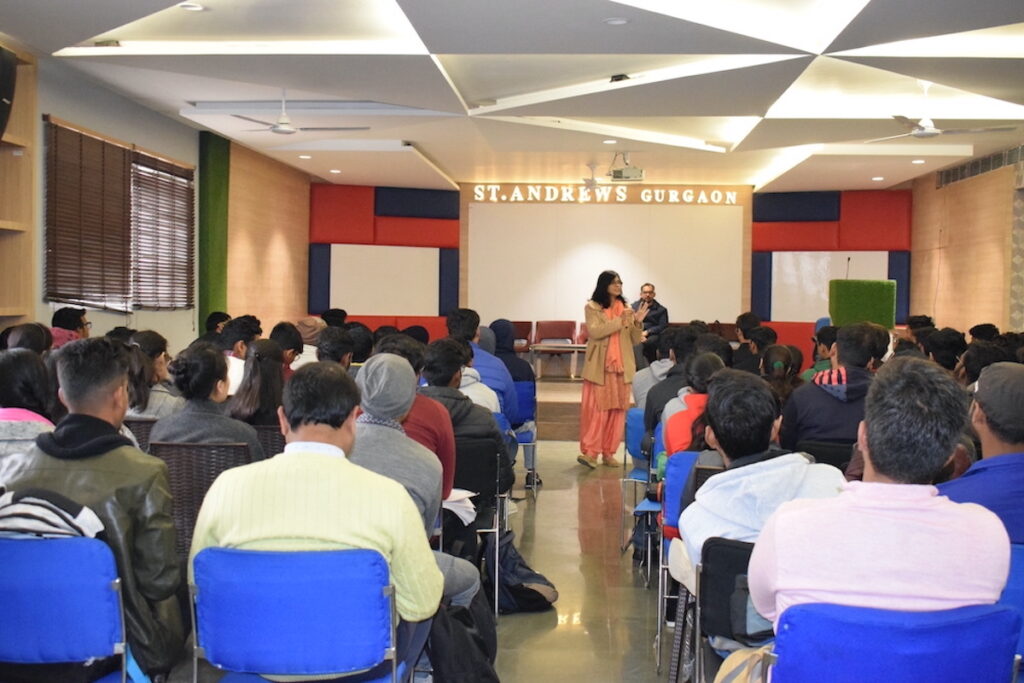
Govt Colleges
- Lower Tuition Fees: Govt colleges generally have lower tuition fees due to state or central government funding. This makes them more affordable, especially for students from economically weaker sections.
- Subsidized Costs: The government often subsidizes education, meaning the actual cost to the student is significantly reduced.
- Uniform Fee Structure: Fees in govt colleges are usually standardized across the state or country, leading to consistency and predictability.
Private Colleges
- Higher Tuition Fees: Private colleges often charge higher tuition fees to cover the cost of infrastructure, faculty salaries, and other facilities, as they do not receive government funding.
- Variable Fee Structure: Fees can vary significantly between institutions based on location, reputation, and available facilities. Premium institutions may charge significantly higher fees.
- Additional Charges: Besides tuition, there may be additional charges for amenities like hostels, labs, sports facilities, etc.
Tuition Fees in Top DPharma Colleges in India
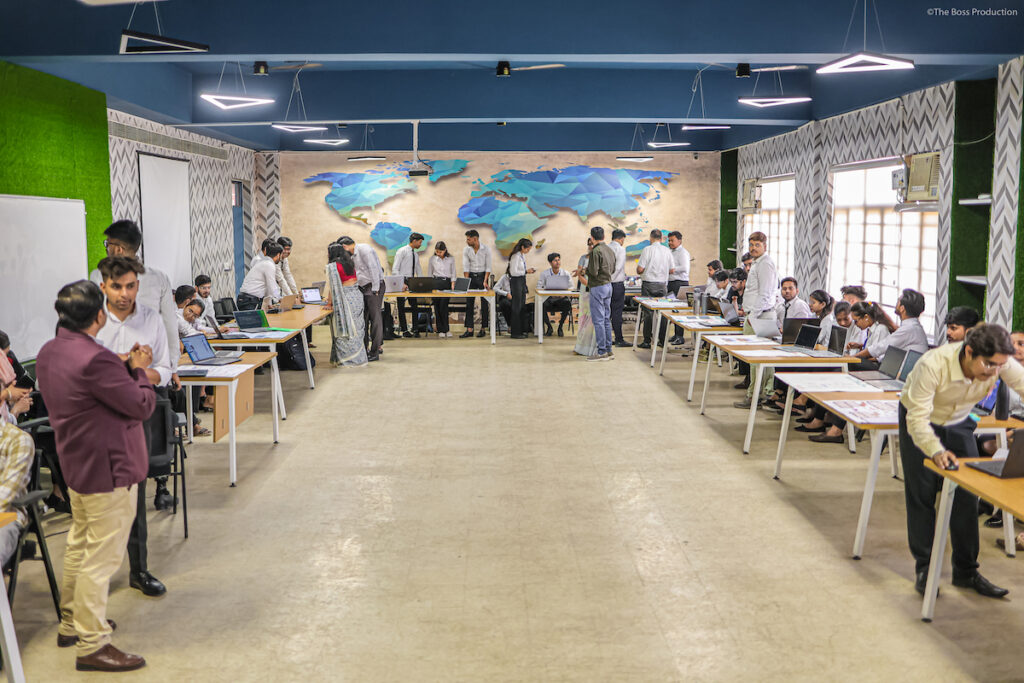
Here’s a brief overview of the tuition fees in some of the top D.Pharma colleges in India:
Delhi Institute of Pharmaceutical Sciences and Research (DIPSAR), Delhi
- Tuition Fees: Approx. ₹25,000 – ₹30,000 per annum
St. Andrews College of Pharmacy (SACP), Gurgaon
- Tuition Fees: ₹78,500 per year
Jamia Hamdard, New Delhi
- Tuition Fees: Approx. ₹80,000 – ₹1,00,000 per annum
Bombay College of Pharmacy, Mumbai
- Tuition Fees: Approx. ₹1,00,000 – ₹1,25,000 per annum
Institute of Chemical Technology (ICT), Mumbai
- Tuition Fees: Approx. ₹85,000 – ₹1,00,000 per annum
Birla Institute of Technology (BIT), Mesra
- Tuition Fees: Approx. ₹1,20,000 – ₹1,40,000 per annum
JSS College of Pharmacy, Ooty
- Tuition Fees: Approx. ₹1,00,000 – ₹1,25,000 per annum
Additional Costs: Hotel, Library, and Exam Fees

Here’s a brief overview of additional costs for D.Pharma students:
Hostel Fees
- Range: ₹40,000 – ₹1,00,000 per annum.
- Includes: Accommodation and basic amenities (may vary based on the institution and room type).
Library Fees
- Range: ₹1,000 – ₹5,000 per annum.
- Includes: Access to books, journals, and digital resources.
Exam Fees
- Range: ₹1,500 – ₹5,000 per semester.
- Includes: Examination registration and other related administrative costs.
Top DPharma Colleges Fee Structure
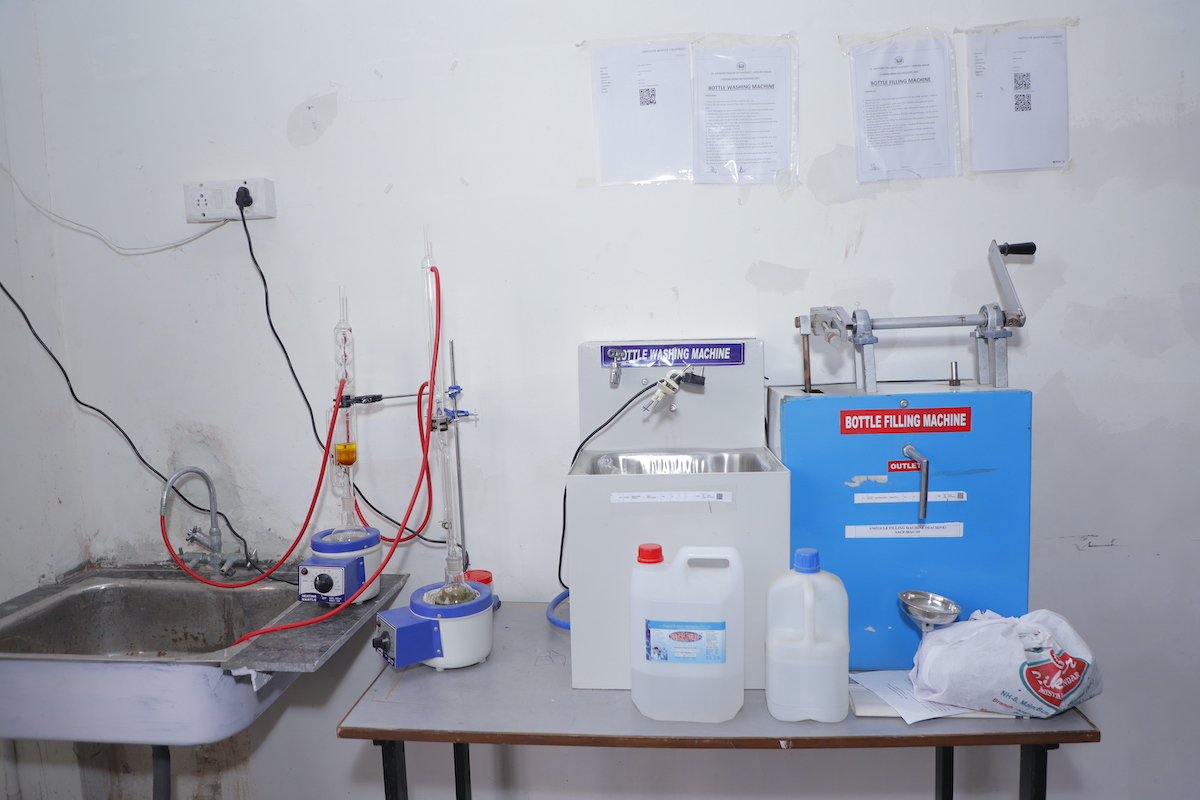
Here is an overview of the fee structure for top D. Pharma colleges in India:
St. Andrews College of Pharmacy (SACP), Gurgaon
- Fees: ₹75,000 per year
- Components: Tuition fees, registration fees, lab fees, library fees, and other miscellaneous charges.
Govt College of Pharmacy, Mumbai
- Fees: ₹50,000 – ₹70,000 per year
- Components: Tuition fees, examination fees, lab fees, and library fees.
Delhi Institute of Pharmaceutical Sciences and Research (DIPSAR), New Delhi
- Fees: ₹30,000 – ₹50,000 per year
- Components: Tuition fees, registration fees, examination fees, lab fees, and other miscellaneous charges.
Government College of Pharmacy, Bengaluru
- Fees: ₹40,000 – ₹60,000 per year
- Components: Tuition fees, registration fees, lab fees, and examination fees.
Government Pharmacy College, Amritsar
- Fees: ₹45,000 – ₹65,000 per year
- Components: Tuition fees, lab fees, library fees, and examination fees.
Govt College of Pharmacy, Gandhinagar
- Fees: ₹50,000 – ₹70,000 per year
- Components: Tuition fees, lab fees, library fees, and registration fees.
State Wise Breakdown of D Pharma Course Fee
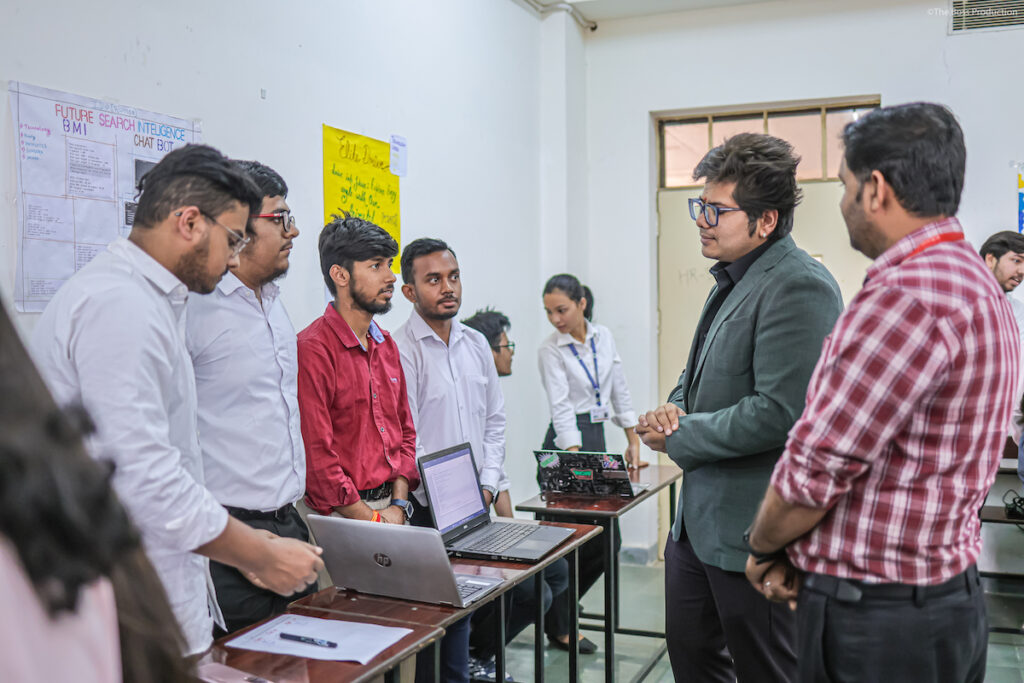
Here’s a short state-wise breakdown of D Pharma course fees:
Haryana
- St. Andrews College of Pharmacy (SACP): ₹75,000 per year
Delhi
- DIPSAR: ₹25,000 – ₹30,000 per annum
- Jamia Hamdard: ₹80,000 – ₹1,00,000 per annum
Maharashtra
- Bombay College of Pharmacy: ₹1,00,000 – ₹1,25,000 per annum
- ICT Mumbai: ₹85,000 – ₹1,00,000 per annum
Tamil Nadu
- Madras Medical College, Chennai
- Tuition Fees: ₹15,000 – ₹25,000 per annum
Karnataka
- JSS College of Pharmacy, Mysore: ₹1,00,000 – ₹1,20,000 per annum
West Bengal
- Jadavpur University: ₹15,000 – ₹25,000 per annum
Fee Payment Options and Installment Plans

Here’s a brief overview of fee payment options and installment plans for D.Pharma courses:
Fee Payment Options
Lump-Sum Payment: Paying the entire course fee upfront at the beginning of the academic year.
Semester/Annual Payment: Fees can be paid at the start of each semester or annually, depending on the institution’s policy.
Online Payment: Most colleges offer online payment options through net banking, credit/debit cards, or payment gateways.
Demand Draft/Cheque: Some institutions accept payments via demand draft or cheque.
Installment Plans
Institutional Installments: Many colleges allow students to pay the fees in 2-4 installments over the academic year.
Custom Plans: Some institutions may offer customized installment plans based on the student’s financial situation, subject to approval.
Education Loans: Banks provide education loans with options to repay the fees in smaller, manageable installments over several years, often starting after the course is completed.
Hidden Costs to Consider in DPharma Programs
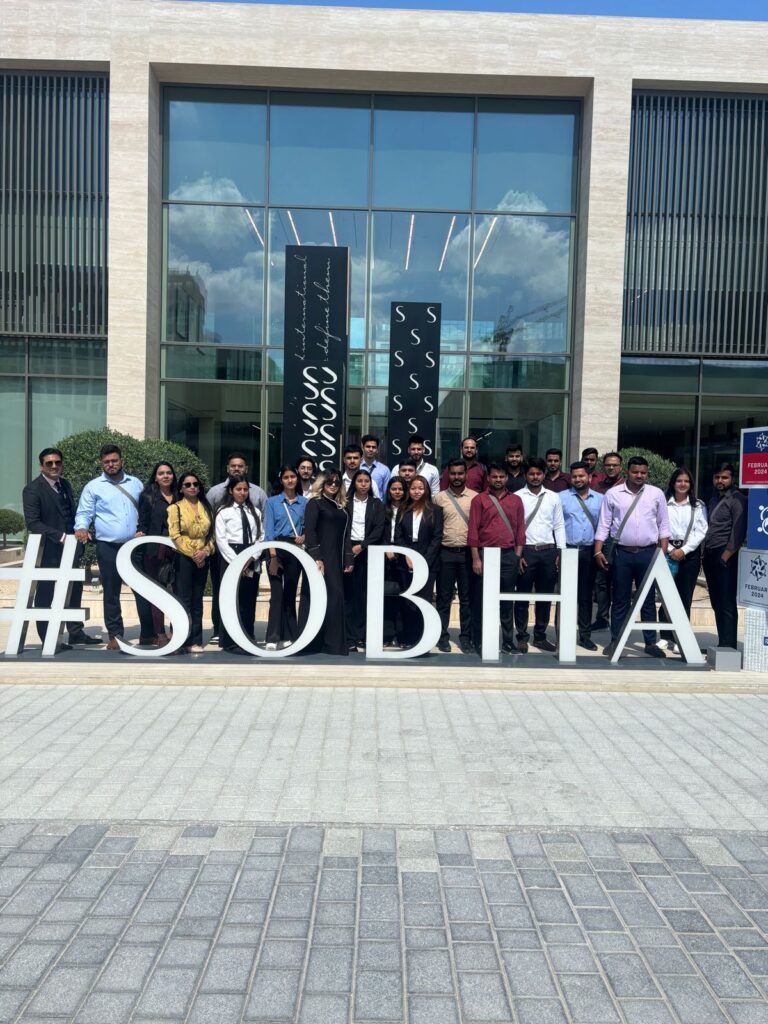
When pursuing D.Pharma program, it’s important to be aware of potential hidden costs beyond tuition fees:
Lab Fees
Charges for lab materials and equipment usage, typically ranging from ₹5,000 to ₹10,000 per annum.
Uniform and Safety Gear
Costs for lab coats, safety goggles, and other required attire, which can add up to ₹3,000 – ₹5,000.
Books and Study Materials
Textbooks, reference materials, and notes may cost ₹5,000 – ₹15,000 per year.
Examination Fees
Additional fees for exams, practical, and re-evaluations, usually around ₹1,500 – ₹5,000 per semester.
Extracurricular Activities
Participation in workshops, seminars, and conferences may incur fees of ₹2,000 – ₹10,000 annually.
Transportation Costs
Daily commuting expenses or travel for internships and training programs can vary significantly.
Scholarship and Financial Aid for DPharma Students
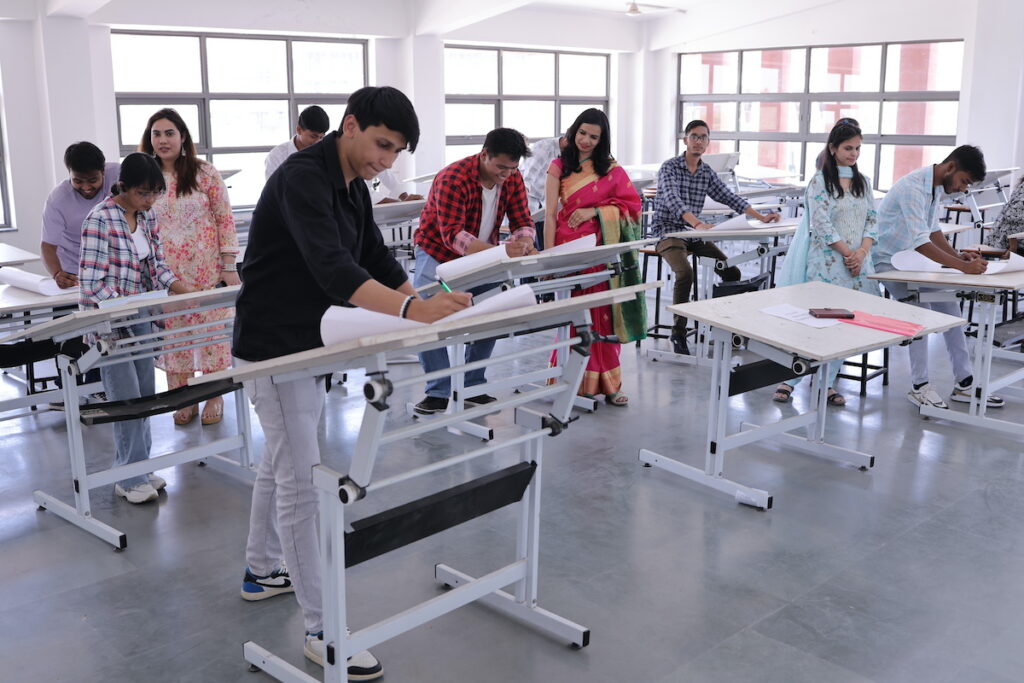
Here are some common options available to D.Pharma students:
Government Scholarships
Post-Matric Scholarship for Minorities
- Eligibility: Students belonging to minority communities (Muslims, Christians, Sikhs, Buddhists, Jains, and Zoroastrians) with a family income of less than ₹2 lakh per annum.
- Benefits: Covers tuition fees, maintenance allowance, and other compulsory fees.
- Application: National Scholarship Portal (NSP).
Merit-cum-Means Scholarship
- Eligibility: For economically weaker students from minority communities. Students must have scored at least 50% in the previous final examination.
- Benefits: Up to ₹20,000 per annum towards course fees and maintenance allowance.
- Application: National Scholarship Portal (NSP).
Central Sector Scheme of Scholarships for College and University Students
- Eligibility: Students with a high academic performance (above 80th percentile) in Class 12 exams and a family income of less than ₹8 lakh per annum.
- Benefits: ₹10,000 per annum for the first three years of undergraduate studies.
- Application: National Scholarship Portal (NSP).
State-Specific Scholarships
Eligibility: Varies by state, often targeted at economically weaker students, minority groups, or merit-based scholars.
- Examples: E-Kalyan in Jharkhand, Mukhya Mantri Yuva Swavalamban Yojana (MYSY) in Gujarat.
- Benefits: Can include tuition fee waivers, maintenance allowances, and book grants.
Private and Institutional Scholarships
AICTE Pragati Scholarship for Girls
- Eligibility: Available to female students pursuing technical education, including pharmacy. Family income must be below ₹8 lakh per annum.
- Benefits: ₹50,000 per annum for up to 4 years.
- Application: AICTE website.
Swami Vivekananda Scholarship
- Eligibility: West Bengal students with high academic scores and a family income of less than ₹2.5 lakh per annum.
- Benefits: Covers tuition fees and other educational expenses.
- Application: West Bengal government’s scholarship portal.
Ratan Tata Trust and Navajbai Ratan Tata Trust Scholarships
- Eligibility: Students from economically weaker sections pursuing pharmacy and other healthcare-related courses.
- Benefits: Covers a portion of tuition fees and educational expenses.
- Application: Directly through the Tata Trusts website.
College-Specific Scholarships
- Many private and government colleges offer merit-based or need-based scholarships.
- Example: Some colleges offer tuition fee waivers or financial aid for top-performing students or those in financial need.
FAQs
What is the fee up for D Pharma?
The Fees of DPharma (Diploma in Pharmacy) in India usually vary between ₹50,000 and ₹1,50,000 annually, influenced by the choice of institution and its location. Typically, private colleges tend to have higher fees compared to government institutions.
In addition to tuition, students pursuing a course in pharmaceutical science may need to cover additional expenses such as books, lab equipment, and exam fees.
Scholarships and financial aid may be available to help eligible students reduce the Fees of DPharma. It is recommended to consult specific institutions for the most accurate and current information on fee structures.
What is the fees of Pharm D in India?
The Fees of DPharma in India generally range from ₹2,00,000 to ₹5,00,000 annually, depending on the institution and its location. Typically, government colleges charge lower fees compared to private institutions. Financial aid and scholarships are often available to help students manage these costs.
How many years is D Pharma?
The D. Pharma (Diploma in Pharmacy) course in India is a 2-year full-time program that provides students with essential knowledge and skills in pharmacy. This curriculum blends theoretical learning and practical training, covering topics like pharmacology, pharmaceutical chemistry, and drug store management. It also includes information on the Fees of DPharma, helping students understand the financial aspects of their education.
This practical experience is essential for gaining hands-on knowledge and meeting the requirements for registration with the Pharmacy Council in India.
Can I do D-pharma after 12th?
Yes, you can enroll in a D. Pharma (Diploma in Pharmacy) program after completing the 12th grade. Eligibility requires passing 12th with Physics, Chemistry, and either Biology or Mathematics from a recognized board. This program offers foundational pharmacy knowledge and prepares you for various pharmaceutical roles in hospitals, community pharmacies, and the manufacturing sector. It also details the Fees of DPharma, giving you a clear understanding of the financial aspects of your education.

